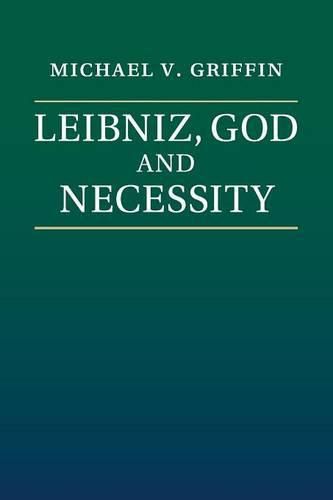Readings Newsletter
Become a Readings Member to make your shopping experience even easier.
Sign in or sign up for free!
You’re not far away from qualifying for FREE standard shipping within Australia
You’ve qualified for FREE standard shipping within Australia
The cart is loading…






Leibniz states that ‘metaphysics is natural theology’, and this is especially true of his metaphysics of modality. In this book, Michael V. Griffin examines the deep connection between the two and the philosophical consequences which follow from it. Grounding many of Leibniz’s modal conceptions in his theology, Griffin develops a new interpretation of the ontological argument in Leibniz and Descartes. This interpretation demonstrates that their understanding God’s necessary existence cannot be construed in contemporary modal logical terms. He goes on to develop a necessitarian interpretation of Leibniz, arguing that Leibniz, like Spinoza, is committed to the thesis that everything actual is metaphysically necessary, but that Leibniz rejects Spinoza’s denial of God’s moral perfection. His book will appeal to scholars of early modern philosophy and philosophers interested in modal metaphysics and the philosophy of religion.
$9.00 standard shipping within Australia
FREE standard shipping within Australia for orders over $100.00
Express & International shipping calculated at checkout
Leibniz states that ‘metaphysics is natural theology’, and this is especially true of his metaphysics of modality. In this book, Michael V. Griffin examines the deep connection between the two and the philosophical consequences which follow from it. Grounding many of Leibniz’s modal conceptions in his theology, Griffin develops a new interpretation of the ontological argument in Leibniz and Descartes. This interpretation demonstrates that their understanding God’s necessary existence cannot be construed in contemporary modal logical terms. He goes on to develop a necessitarian interpretation of Leibniz, arguing that Leibniz, like Spinoza, is committed to the thesis that everything actual is metaphysically necessary, but that Leibniz rejects Spinoza’s denial of God’s moral perfection. His book will appeal to scholars of early modern philosophy and philosophers interested in modal metaphysics and the philosophy of religion.